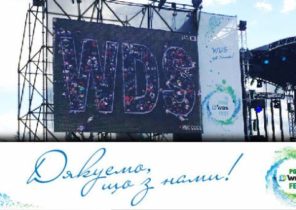
Present to our readers one of the chapters of the book “Travels in Eastern Europe”, published in the Portuguese edition. At the end of 50 years of Nobel laureate Gabriel Garcia Marquez visited Berlin, Czechoslovakia, Poland, Hungary and the Soviet Union. As you can guess, the Colombian writer was disappointed.
Colombians remember well what they were doing at the exact moment when they became aware of the decision of the Swedish Academy in 1982 to award the Nobel prize in literature, Gabriel garcía márquez, meanwhile, the writer himself always kept the memories of their trips for so-called “iron curtain”. The reasons in both cases are different, but the power of surprise the situation is similar, because we are talking about unforgettable experiences.
That’s what happened with the Colombian writer, when at the end of the 50s he managed to overcome political barriers and the old French car of an Italian friend some time accompanied by a friend — to travel to countries where, as he believed, he ordered the way. But it turned out — far from it, and suspicious of the ease with which Marquez gets to Germany, then Czechoslovakia, crosses the territory of Poland, met with Hungary, and realizes that he has a real chance to visit the Soviet Union, it is not a little surprising. So much that he, unable to resist, talks about his pilgrimage into the world of Eastern Europe in a series of essays which today for the first time in Portugal under one cover.
If it is not, the texts were signed Gabo, as it is often called, a report that was later published in parts, have been complaints of some typical leftist of those times, faced with a different vision of the world. So shocked by the differences between societies that are not able to bite my tongue and keep from some confessions, some of which puts into the mouth of two of his companions, so as not to be the only critic. The situation is similar to the one which got the Portuguese “fans” of the Soviet Union, who preferred not to write down immediately your thoughts about what you saw, or the American writer John Steinbeck, who for ten years before that, along with photographer Robert Capa visited the Soviet Union and chose to describe the literary form, avoiding the disappointed tone inherent in the story of Gabo.
Since the writer is no longer with us, ask for evidence to his friend Plinio Mendoza, with whom he traveled to Moscow: “Communism was in some degree disappointed. Nothing worked, everything seemed so antediluvian… and he has never been particular adept of communism as a state of the regime.”
At the time Marquez was still separated from the main novel “one Hundred years of solitude” years, the author finished the story “nobody writes to the Colonel”, and the relative success in Colombia, he brought a feuilleton, published in the newspaper El Espectador, “the Story of a shipwreck” (“Relato de um náufrago”).
According to the biographer of the writer Gerald a Martin (Gerald Martin), while Gabo dreamed of traveling in search of new subjects for their journalistic works: “With each new report, the expectations of readers grew, and the desire not to repeat himself it extremely exhausting”. That’s when Marquez left Bogota and went to Europe, about which he said: “I have seen a lot, and I have formed our own view of the world”. In other words, Marquez left the film and read the Marxists.
The key point of this new stage in the writer’s life will happen when Marquez, who was in divided Berlin, will be able to join one of the many foreign delegations that will take part in the VI Moscow festival of youth: “for two years preparing the Soviet Union to welcome delegates from around the world [around 90 thousand participants], and we had enough reason to believe that is true Soviet reality offer us a different — fabricated for foreigners”. Interestingly, the form in which the writer justifies these preparations: “Some Western governments have used these 15 days of the festival to introduce their specially trained spies”; or transfers the story to his girlfriend: “we believe that in Poland there is freedom of religion, they opened the Church and put everywhere disguised as priests civil servants”. Referred and unhealthy the attention of the fairer sex Eastern Europe to the nylon stockings: as those who wore them, and those who could only dream of.
It was the era of Soviet leader Nikita Khrushchev, seriously passionate about space exploration, only three months before brought into orbit an artificial satellite. Then there occurred the first attempts to overcome the tragic legacy of Stalin and the country, which it will find Marquez, cause he is the truth of culture shock, the result of which will be the first essay [partially published].
It is necessary to highlight from this story one paragraph: “Russian literature and cinema with remarkable accuracy displayed the life, flying past the carriage window.” What was observed by the author from the window of the TRANS-Siberian Express and that he was not allowed to see, the reader can know only after reading these 190 the truth of Kafka’s pages, which are perceived as a living novel where there is no shortage of autobiographical inspiration.
“Travel Eastern Europe”
Gabriel Garcia Marquez
Publisher Of “Don Quixote”
192 pages
EUR 14.90
Pre-publication chapters from the book
That came to an end a long boring day, dismal summer heat and slow motion stretch without timetables, who spent his eyes frozen in amazement, the boy with the cow. The endless plains planted with tobacco and sunflowers, quickly descended twilight. Franco, whom we met in Prague, dropped the window frame and called me: in the distance glittered the Golden dome. We were in the Soviet Union. The train stopped near the railway opened a hatch in the ground, and sunflowers grew the group of soldiers with guns. We did not understand, where did the hatch. Nearby, stood the plywood targets in a man for shooting at a target, but there was no sign of any buildings. The only explanation one could find is that here, apparently, there was an underground barracks.
The soldiers made sure no one was hiding under the cars. Two officers went up to check passports and festival accreditation. They treated us with assiduous attention, until he finally became convinced that we are similar to your photos. This is the only border in Europe, where the taking of such precautions.
The town of Chop — two kilometers from the border — the first in the West locality of the Soviet Union. Although the latter festival delegates passed here a week ago, the station was still decorated cardboard doves, slogans of peace and friendship in different languages and flags from around the world. The translators we met. The girl in blue said that you can walk around the city, as the train to Moscow departs at nine in the evening. On the station clock was eight, on my six, because they were showing Paris time; had to translate arrows two hours ahead in accordance with the official time of the Soviet Union. And in Bogota was twelve days.
In the Central hall of the station, on either side of the entrance, leading directly into the town square, stood a newly painted silver paint two statues in full growth: Lenin and Stalin, both in mufti and in a quite home poses. Russian alphabet is that, I thought the letters on the ads apart, and it gave the impression of ruin. One French woman was struck by the poverty of the people, and I have not noticed that they were particularly badly dressed, probably because for more than a month lived behind the “iron curtain” and the girl was now at the mercy of those sensations which I experienced before in East Germany.
In the center of the square on the well-manicured, filled with flowers in the garden, broken concrete around the fountain, walked with military children. On the balconies of brick houses, freshly painted in bright, simple colors, and at the doors of shops without the storefronts — everywhere there were people going out to get some evening cool. Several people loaded with suitcases and bags of food were waiting for the only Cup in front of cart with soda water. Here was a very a rustic atmosphere with a provincial poverty prevented me to feel the difference in ten seconds that separated me from the Colombian villages. It’s like confirmed that the globe is actually more round than we expect, and is enough to drive only 15 thousand km away from Bogota to the East to once again be in the towns of Tolima.
The train arrived exactly at nine. Eleven minutes later — right on schedule — at the station speaker sounded the hymn, and the composition was broken, accompanied by waving of handkerchiefs from the balconies, and shouts of farewell. Cars of the Soviet trains is the most comfortable in Europe, every compartment — comfortable room with two beds, a radio with one programme, a lamp and a vase for flowers on the bedside table. All cars of the same class. Cheap suitcases, nodes with baggage and food, clothes and apparent poverty of people is not combined with luxurious and carefully cleaned cars. Traveling with their families, the military removed the boots and jacket and walked the halls in t-shirts and sneakers. Later I was convinced that the Soviet officers such simple and human habits, like the Czech military.
French trains are as accurate. In the compartment we found printed in three languages schedule, which had been maintained with a precision of a second. Perhaps the organization of the railway traffic was set to impress the delegates. But it is unlikely. Was more significant things isolava Western guests, yet did not hide them. For example, radios with only one switch: only in Moscow program. Radios are very cheap in the Soviet Union, but the freedom to use them are limited: you can either listen to Moscow, or to turn off the radio.
It is clear why the Soviet Union trains — these hotels on wheels; human imagination can hardly comprehend such vast open spaces. The trip from chop to Moscow through the endless wheat fields and poor Ukrainian village — one of the shortest: a total of 40 hours. From Vladivostok on the Pacific ocean on Monday sent a fast train to Moscow he arrives on Sunday night, breaking space equal to the distance from the equator to the pole. When the Chukotka Peninsula five o’clock in the morning, in the area of lake Baikal — midnight in Moscow seven o’clock in the evening of the previous day. These details give a rough idea of what extends for all its size, the colossus, the Soviet Union, with its 200 million people, who speak 105 languages and countless nationalities — are such that it fits in one village, twenty-inhabit the small Republic of Dagestan, and some even are not yet fully defined, the colossus, whose territory is equal to three, the United States, occupies half of Europe, one third Asia and in the amount is the sixth part of the globe — 22 400 000 square kilometres without a single advertisement of Coca-Cola.







